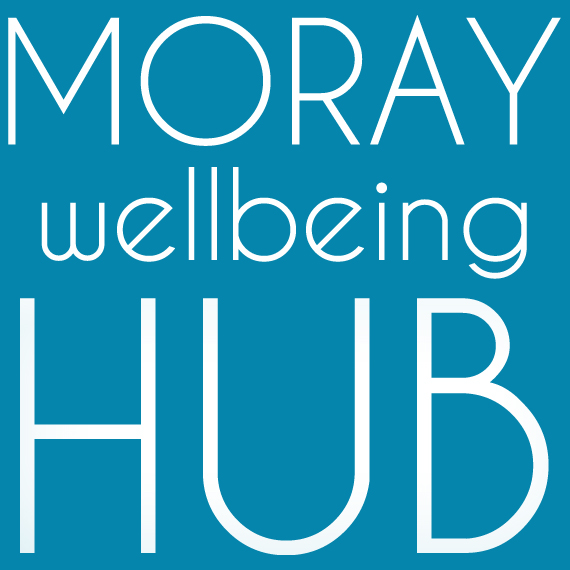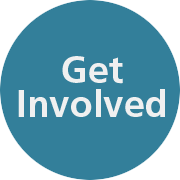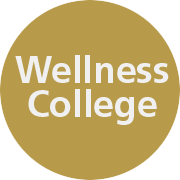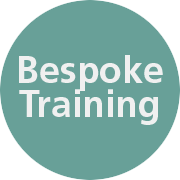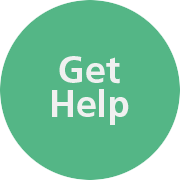Invited to share the work of the Moray Wellbeing Hub, two of the hub Champions (Heidi & Marion) attended this event alongside others interested in peer support from 14 countries. Aside from presenting our work and vision, we heard from speakers from projects from Ireland, Spain and the Netherlands. What was great to hear was how much we had in common in terms of the activities and projects we were delivering, and shared values in terms of a focus on empowerment, human rights and mental distress being a human experience.
Despite the language barriers, and working hard to present our work in a slow and clear voice for easy understanding, we received a very warm response to our work in Moray. I was expecting that some of what we shared may not land easily due to the cultural barriers, but this was unfounded as the day went on. It seems that as people interested in working as peers we had more in common in language that with those we may have geographic links with!
Enik Recovery College (Utrecht, Netherlands) – Dylan Peters & Nienke Buijs
Dylan shared a little of his own recovery journey, of being in hospital treatment 5 years ago to then meeting peer supporters, and them becoming one himself, to today and travelling to present in another country.
Nienke spoke of her challenges in sharing experiences of recovery addiction as part of her role in Enik. Reflecting on how she works at the college now she said, “I grow as a person in my role; it’s not a job, but to be myself in my clearest self.”
The Enik translates as “Me Too” in English, Recovery College has a variety of services for peers who are facing serious life challenges. They have their own building in Utrecht that people can access without referral and courses for free. “Everyone is welcome, but when they come in they are referred to as students”, Dylan clarified, adding, “we teach a school of life”.
The organisation is 100% peer-run, people come and live with them, trading skills and activity, sharing the running of the organisation. They have 10 rooms available for residential 5-day retreats where people can stay with them, and a restaurant/cafe where anyone can come for informal support.
The values are vital to the running of the organisations,” Every day we reflect and ask – are we working with our values?” Dylan notes. They have national funding and as a result, people can travel to have their retreat, not just local people. They are hosted by a housing organisation called Lister and work in partnership with them, but one day hope to be fully independent.
Nienke made it clear that they are not there to advise, but to share with peers, “you inspire me, I inspire you. Peers work vice versa, not advice but giving own free space to explore your process of recovery.”
Fundacion Mundo Bipolar, Spain. Guadalupe Morales & Mar Guerrero
Guadalupe spoke about their work in research and how this has echoed her experiences of facing discrimination in her own life. As a result of losing her job twice due to discrimination around her diagnosis, she started a website for people to share peer support and this attracted 45,000 visits a day. She realised that the peer relationship and sharing were vital to changing from, “Ill persons to citizens”.
As a result, she wanted to create change using education – “nothing about us, without us” -making coproduction key in creating a new educational resource. This became the peer2peer project which started in 2009 and was very successful in empowering people around self-management and activism as a peer. Reflecting on this, the learning she shared was how important it is to measure the impact of activity so that it can be regarded as research, not just good practice.
One spin-off of the project was to train frontline emergency staff using peers around discrimination. Interestingly the training team for this is made up of one psychiatrist, one psychologist and two service users, all who are given parity of resources by being paid the same.
Mar then shared her of experiences of the training as someone who attended the course as a peer. She is now a trainer in the delivery of the empowerment course and also runs her own English language academy as a successful businesswoman. She shared that without the organisations she would never have recovered in the same way and that mindfulness and self-empowerment were the key components of their work.
Mar could see that the way that peers worked has wide-reaching impact beyond just mental health awareness and for wider society, “Peers are experts in transformation – the best people to help fight discrimination and create change.”
Dublin City University, Dr Liam MacGabhann & Martha Griffin, co-producing peer support and nursing education.
Martha and Liam were passionate about co-production, or rather the ‘real’ meaning of the word and not the corruption that has occurred with this term’ overuse for funding and service delivery. “Concepts of recovery and co-production have been corrupted by mental health services.”
They are part of a mixed team, Martha described herself as “the only outed person on the team”, working mutually to create Ireland’s first peer support roles and training in the statutory health services. Liam shared that he was “radicalised” in the late 80s realising that he as a professional was trained against what really was helping people. Their introduction and ease around each other showed a shared approach, and he spoke about sharing values with Martha, but having diversity in life experiences and each bringing a different range of skills to the table.
They posed a question– is coproduction a new way of control? And reflected that “sometimes workers adopt the language but retain the old ways of doing things”. “How can we truly share power when there is a power dynamic?” These open questions were very interesting and set a backdrop for their project work.
Project 1: COMMUNE – coproduced nurse education project: This is a coproduced learning unit between academics and lived experience, which was then delivered by service users to nursing students. Liam pointed out that despite their best attempts at true coproduction, even from the start with their Erasmus application they had failed to do this. However, they quickly learned, reflected honestly and decided they’d do the best they could from that point on. This funding gave them the opportunity to “Learn and live coproduction”, and they realised that the process was more important that the output of the learning unit. Their hope was to embed a new approach in nurses’ training rather than the tokenistic use of service user voice in the courses. Delivering of the unit faced challenges, for example around language. Martha shared that she realised that as a peer-trainer she was coming from a radically different place, she was focusing on perspectives around power dynamics, but the nurse students were still going to have to try to work in the medical model – things had to evolve.
Project 2: Peer-Support Workers.
Liam reflected that there are very conservative mental health services in Ireland, with their first peer-worker came to fruition in 2013. The government then decided to create a new pay grade for people with lived experiences within the health services, and Liam and Martha were part of the team tasked with supporting the training of these new workers.
It was decided to use cooperative learning to create a new peer training in Ireland, rather than draft in what was created elsewhere, learning as people shared their work on the ground. Interestingly peer-support workers in statutory services were paid from day one and trained as they worked over the course of a year.
During the project, Liam became a buffer between the peer-support workers and the health services and supervisors to maintain the values. Project issues included: the second year of training being pulled by the health services, and pay for peer-support workers being poor. However, they did manage to develop a new Irish model of peer support, created a cooperative learning model. People valued the group supervision approach and residential learning opportunities.
The main challenge in going forward is the power of the Irish health service: the boundaries of where new peer workers can fully use their professional status vs this peer role being a way of co-opting people to becoming part of the system. Interesting for us at the hub was that they used external supervision from an independent carer and user organisation locally to support the peer workers, something we would like to be able to offer other organisations in Moray in the future.
Heidi, MWH Champion
As Heidi said I accompanied her to the Mental Health Europe’s Capacity Building seminar on Peer Support In Edinburgh on December the 11th. We arrived on Sunday evening and went out for a meal with 7 other participants. I was quite tired and wondered if I had the energy to converse with Italian, Lithuanian, French, Russian, Sweedish, German people in a civilised way over a meal, let alone all the organisation of who wanted what. But to my surprise after a short, while communication and my energy started flowing.
At the conference, it was amazing to be part of these 14 countries sharing their work and challenges and hopes for the future. It was really inspiring to hear from Enik and a lot of us in the room just couldn’t get our head around how they managed to be 100% peer in their delivery particularly in their retreat accommodation for 10 people for 5 days where they support and offer self-management tools, share, and listen to each other and help with the domestic duties. All apparently without any hierarchies. Also, they received funding 100% funding for running the operation form the government and the partnership with Lister who provided the buildings. I loved the idea you could make your own courses and everyone was seen as an asset.
The Fundacion Mundo Bipolar, Spain Spoke about creating a website to educate and give an opportunity for peers to connect. “Mentally ill people are more likely to be victims not perpetrators of violence”; “Owning discrimination happened veering away from calling it stigma”; “nothing about us without us”; “from ill person to citizen” “self- empowerment and mindfulness”; “we really have to search for what brings us happiness”; “Because we have lived experience we are experts in transformation” are some of the sound bites I captured.
We had loads of exciting and hopeful conversations where I got a strong sense that what we are doing in Moray in the Wellbeing Hub is an echo of what is cutting edge new thinking that is happening all over the world in little pockets and let’s hope these little pockets are getting bigger all the time. We are all pioneers of a new world order.
